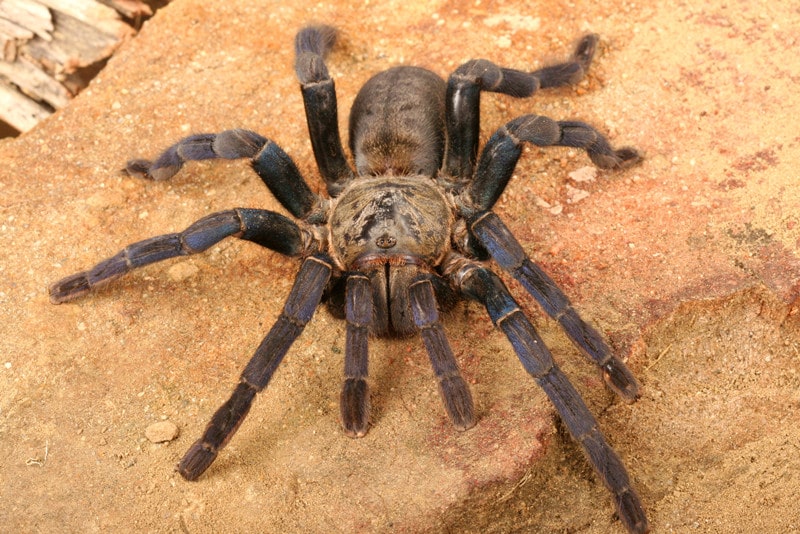Researchers put forward the hypothesis that insects are aware and aware. The new study not only brings to the forefront the issue of organisms possessing consciousness in one way or another, but even inanimate objects.
Have you ever had a strange experience when a fly or a bee hovered around you, trying to banish it and return every time as if it had vowed to disturb you, and whenever you insisted on removing it, insisted on returning to settle near your ear? Have you ever wondered, did that damned and “arrogant” insect bother you on purpose? Is she really conscious?
This question was scientifically addressed by cognitive specialist Andrew Barron and philosopher Coleen Klein of the Australian University of Macquarie. The researchers used the latest research in neuroimaging to confirm in a study published in the journal Proceedings of the National Academy of Sciences that bees, flies, ants, and most insects are not biological “machines” that do not have a brain. And that these insects may be aware of the world and awareness of themselves and their existence.
On the other hand, scientists are conducting technical research that allows locusts to detect explosives using the sense of smell, and the scientists say that “providing the locust with a thermal tattoo will allow them to be directed to dangerous and isolated areas.” To the authorities.
Insects play important roles, including pollinating plants and promoting soil production through decomposition. They are also food sources for birds and bats, and are considered to be a crop pest and feed on crop pests simultaneously. One of the disadvantages is the spread of diseases.
Ants and flies are selfish!
“When we are hungry, we are not only looking for food, hunger is a unique sensation,” Collin Klein told Discovery News. “When an organism has a self-experience, its mental states are associated with a sensation.” Many insects actually have this experience, according to the study.
To reach this conclusion, the two Australian researchers launched the human brain composition and other vertebrate animals. Several studies have shown that the part called the midbrain gives the person a minimal level of consciousness when the rest of the more developed parts have been destroyed. Hence, the brain of several insects was analyzed by the latest neuroimaging techniques. The researchers discovered that the insect brain does a similar job to the average human brain. The brain of the insect collects information from the surrounding environment, from its memory and from its body to work to organize its activity.
“Insects do not pay attention to all of their senses on an equal footing. They choose what is most important to them at a given moment, and therefore they are selfish or self-centered,” the researchers add, stressing that this new hypothesis is an opportunity to rethink and debate about the meaning of consciousness in Living and even non-living beings. According to Barron, plants have no organ that enables them to possess awareness or awareness. The same applies to simple animals such as the Lean Worms, which possess only 302 neurons. For comparison, a bee has about a million neurons, and when it comes to a dog, for example, it is clear that he has more sophisticated awareness when you see him reeling and running towards his plate to eat. He smells his eating, shows his desire to eat, the world knows about it, and a person exchanges some feelings. Many neuroscientists, philosophers, and thinkers have called for international recognition that some animals have awareness and that this is not limited to humans, which opens the door to a review of our dealings with them.
The term awareness or perception also refers to a more complex level which is self-reflection and it is believed that the human being is the only being able to realize that he is a conscious being !, and researchers believe that the mechanism of consciousness work in insects described in the study of Colin Cullen and Andrew Barron, can be applied to apply On robots. It may suffice to provide the robot with so-called artificial intelligence that takes into account sensory factors, memory and a kind of perception of the body to give it the minimum level of awareness, and some go further than all this by claiming that consciousness exists everywhere, in various degrees, even in non-living formations of matter in our world And across the universe. It is the subject of a previous study by Christoph Koch, president of the American Allen Institute of Brain Science and Giulio Tononi, a neuroscientist at the University of Wisconsin-USA.
The subject of awareness increases the complexity when talking about the clear difference in perception between one person and another person according to his experiences, knowledge and career, without talking about his philosophical or religious formation. Consciousness is among those issues that combine what is purely scientific, such as the structure and properties of the brain, what is philosophical and what is spiritual. Is it possible to reach a satisfactory analysis someday?
American carrion beetle releases chemical signals to alert males
When the American carrion beetle is busy caring for their young and refrains from the function of reproduction, it emits a clear chemical signal to the lustful male and this meaning is conveyed to it very clearly. It lasts three days to deliver a message to the male stating that she is temporarily sterile to prevent him from approaching her.
The study focused on a type of beetle called (Nicophorus vasopilidus) or Acute beetle or American beetle, which is famous for burying carcasses of small animals such as birds and rodents near them to become food for their later larvae.
This study sheds light on how animals change their behavior in order to devote themselves to caring for their young as it pays more attention to raising them than engaging in sexual activity to give birth to a new offspring, said Sandra Steiger, a biologist at the University of Ulm, Germany, who supervised this study published in the journal Nature Communications, “Our study contributes to understanding The family life of the animal and how coordination takes place between the members of these families.











Comments